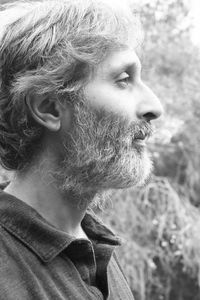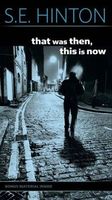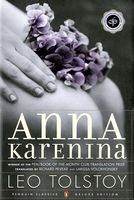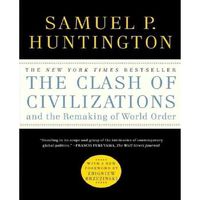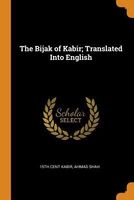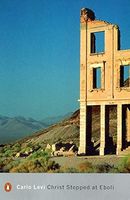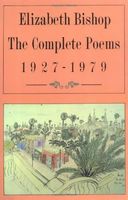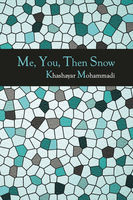"I’ve Read What I’ve Wanted... No Regrets" Ayaz Pirani on the Books That Shaped Him, from S.E. Hinton to Kabir
Ayaz Pirani's third poetry collection, How Beautiful People Are (Gordon Hill Press) builds on his reputation as a meditative, skillful, and wise writer rooted in the Indian ginan poetic tradition. Capturing that musicality on the page, he pulls together threads of post-colonial experience, exploring place, belonging, love, and loss in poems that glow like a match lit in darkness.
Combining urban and contemporary imagery with recursive philosophical perspectives, Pirani creates a voice that juxtaposes a sense of being unmoored and at once hopeful, never quite at home and yet curious to observe and meet the world and all its offerings. Filled with heart but never sentimental, How Beautiful People Are is strong and clear-eyed in its engagement with what it means to seek beauty in a complex world, both interior and exterior.
We're proud to welcome Ayaz to Open Book today to take our WAR: Writers as Readers challenge, where we ask writers to share about their most formative and beloved reading experiences.
He tells us about the "tough, desperate, dangerous" book that was his first important read, the book that made him fall out of his chair laughing (relatably and unfortunately, it was only to keep from crying at the book's egregious prejudices), and why he would give his 17 year-old self the saddest book he's ever read.
WAR: Writers as Readers with Ayaz Pirani
The first book I remember reading on my own:
The first book I remember wanting to read when I was alone was That Was Then, This Is Now by S.E. Hinton. I didn’t want to read it in the living room or with my older brother in his room. I’d have to read this book when I was alone. I’d never be able to explain the story to anyone. I thought it was such a tough, desperate, dangerous book. I’ll never forget the feeling of reading that book at that age.
The first adult book I read:
I’m guessing you mean ‘adult’ like racy? The first book that made me think the characters might be in each other’s beds was Anna Karenina. I hadn’t thought about it before but with Tolstoy and the other Russian writers you started to wonder. When I was growing up the Russian writers were considered carnal, and their paperbacks were higher up on the shelf. They were quite a revelation to me. It took a bit of imagination, but the male British poets were also pretty bawdy, and at that age it was always a treat to grasp an innuendo my teacher had hoped to ignore.
A book that made me laugh out loud:
I fell out of my chair with laughter, to the disappointment of my favourite Reference Librarian at Glendon College, while reading The Clash of Civilizations by Samuel P. Huntington. This side-splittingly infantile analysis of realpolitik continues the endless tradition of grand fantasies about brown people and Eastern cultures. Plenty of time has since passed, yet when I turn on the news I can still see the residue of this terrible book. I might have been laughing then but it’s been nothing but tears ever since.
The book I have re-read many times:
It’s my habit to re-read some special books many times, over the course of a few years, and those books have changed according to my teaching or writing practice. There was a time when I read Erich Auerbach’s Mimesis every few years, later it was Illuminations by Walter Benjamin. I really liked Susan Sontag’s surly, metropolitan tone so I used to read Styles of Radical Will at the end of semesters, just before grading final examinations. For a more icy, sardonic tone I read Suzanne Buffam’s The Irrationalist for a few years. Recently I’ve been reading Kabir’s Bijak.
One book in particular, a novel, that I read every year for maybe five years but then never picked up again, is Lovers and Tyrants by Francine du Plessix Gray. I was in ninth grade when I first turned its pages, far too young. It was on my older cousin’s bookshelf. I longed to have such an interesting interior imagination.
A book I feel like I should have read, but haven't:
I’ve read what I’ve wanted. No regrets.
Your CanLit News
Subscribe to Open Book’s newsletter to get local book events, literary content, writing tips, and more in your inbox
The book I would give my seventeen year old self, if I could:
Christ Stopped at Eboli by Carlo Levi. This is probably the saddest book I have ever read. I was pretty lonely at seventeen, but this book would have shown me that far below my own feelings there were other layers, geographic, generational, idiosyncratic layers. The book would have made me feel better, I believe. It did make me feel better when I read it a few years later.
A book I feel strongly influenced me as a writer and why:
Collected Poems by Elizabeth Bishop. As an undergraduate, when I started to write poems, I fell under the spell of Bishop. Her plain-speech style, with its careful syntax and line-building, with a tone both childlike and childish, disarmed me.
The best book I read in the past six months:
Well, for a book published in 2021 the best book I read was Me, You, Then Snow by Khashayar Mohammadi. Top of my list for the year was Bardia Sinaee’s Intruder, Tolu Oloruntuba’s The Junta of Happenstance, and Kirby’s Poetry is Queer.
A possible title for my autobiography:
White City, Kid Tropic.
_______________________________________________________
Ayaz Pirani was born in Tanzania and studied Humanities in Toronto and Montreal. His degree is from Vermont College of Fine Arts. His books include Happy You Are Here, Kabir’s Jacket Has a Thousand Pockets, and Bachelor of Art. His work has recently appeared in ARC Poetry Magazine, The Antigonish Review, The Malahat Review, and Guest 16. He lives near Monterey Bay, California.
